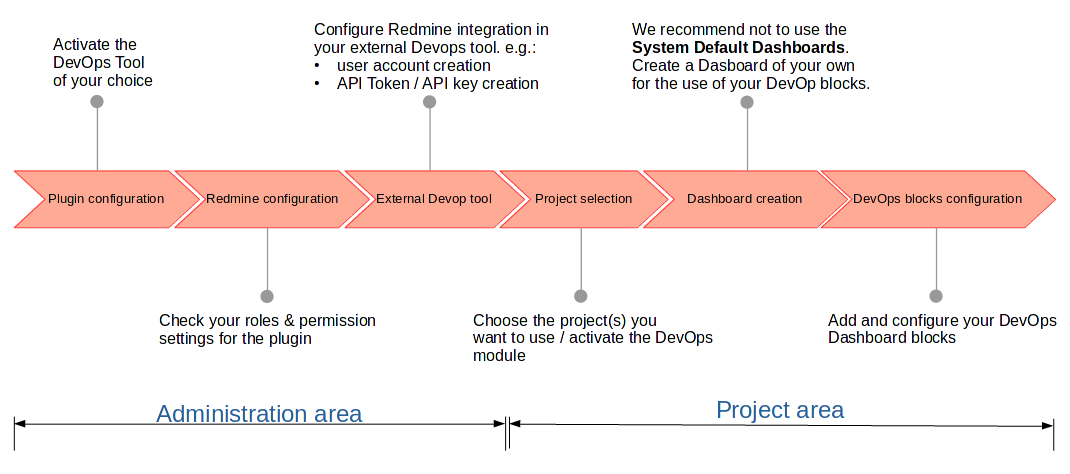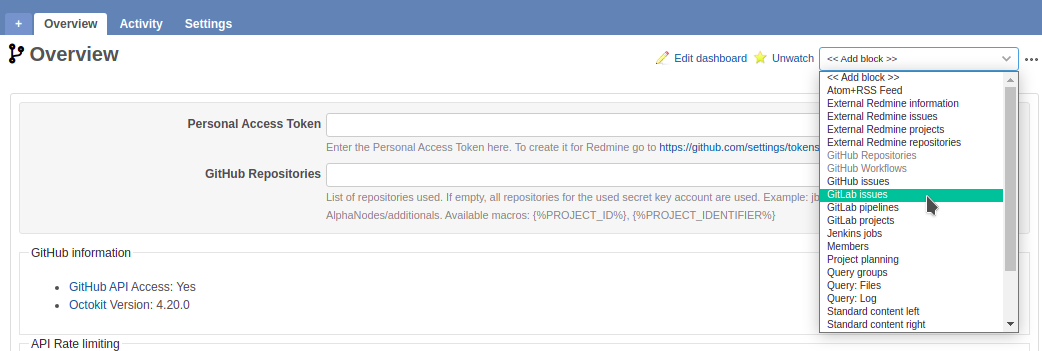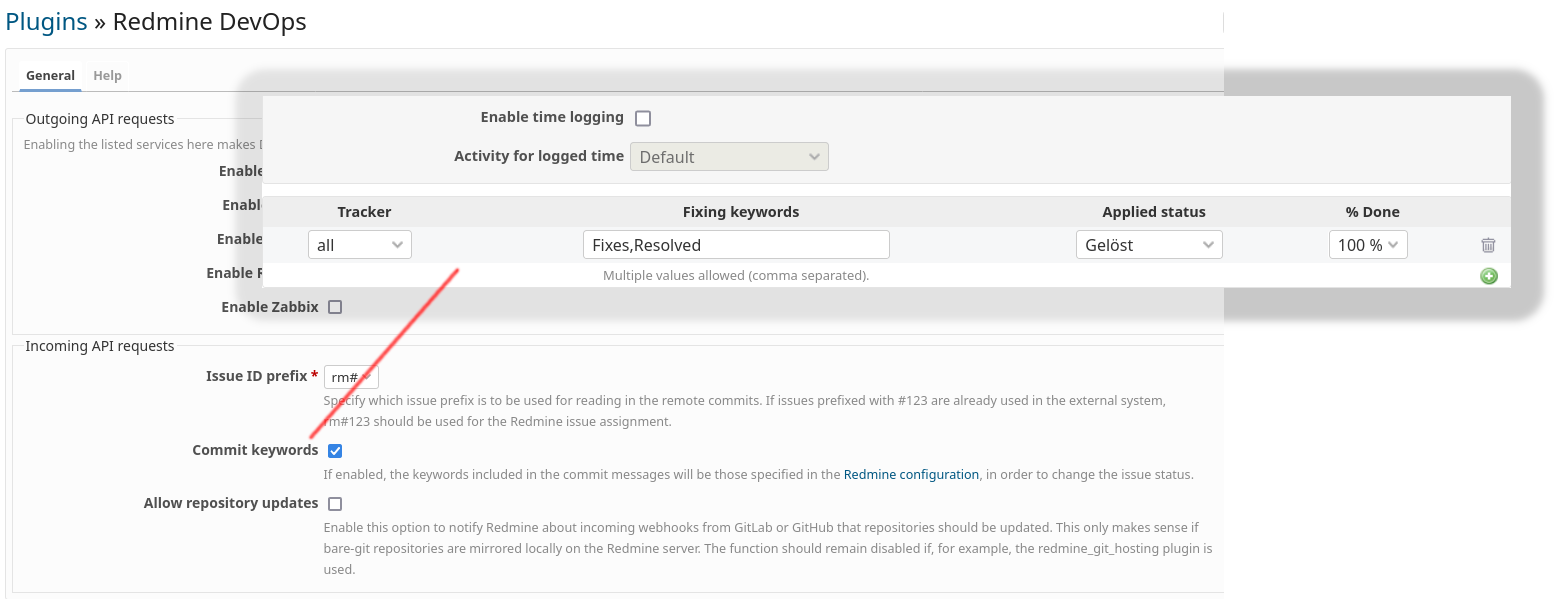If your development team is managing their code in GitLab and control their project tasks with the multi-project management tool Redmine you will benefit from using the Redmine DevOps plugin. Learn how.
What is the function of the plugin?
The DevOps plugin integrates relevant GitLab data directly into Redmine. This way, everyone in the Redmine team has access to external GitLab information when needed and is always up to date. GitLab information included in Redmine for example are: GitLab Merge Requests, GitLab Pipelines, GitLab Projects, GitLab Issues..

Dashboard-Block example for Redmine: GitLab Pipelines
The DevOps plugin functions as an information hub within your Redmine system. The actual activity continues to take place in the externally connected GitLab account. If you want to link external commit messages to Redmine tickets, as well as have allowed repository updates you need to enable the Redmine integration in GitLab before.
It doesn’t matter whether the respective user is project manager or team lead. Or entrusted with development, testing, administration or marketing. One look at the Redmine project overview page and everyone can see what’s going on in the externally connected GitLab without having to leave Redmine.
This is how the GitLab integration works

A user with admin permission configures the connection to GitLab (GitLab Personal Access Token for API access required) once in Redmine.
In the Roles and Permission section, the user defines which user role in a project has access to the GitLab information. The following permissions must be set:
- View repository info
- Link to repository info
- View build info
- Link to build info
- Create remote commits (Webhooks)
- View remote commits (Webhooks)
In the last step, the plugin is activated in the project settings and the now available dashboard blocks for the project overview page are assigned accordingly. To define which information from GitLab is displayed in your Redmine project. For this purpose, the dashboard block is also configured once by a user with the appropriate permissions.
That’s it. From now on, the external GitLab information of the configured account is available to the authorised users from your team.
 Simply add relevant information as dashboard block to your project overview page
Simply add relevant information as dashboard block to your project overview page
The big advantage of dashboard support is that in addition to a publicly accessible dashboard, each employee with dashboard permission can easily create their own private dashboard with their personal GitLab account information.
New in DevOps Plugin v3.1.0
With plugin version 3.1.0, the Commit Keywords stored in Redmine are taken into account in the commit message to change the issue status. Useful for users who do not want to adjust the issue status manually, but by means of their commit. For this purpose, the corresponding option must be activated in the plugin setting and the keywords to be used must be stored in the Redmine settings.
 Enable the corresponding option to use keywords in the commit message to trigger an issue status.
Enable the corresponding option to use keywords in the commit message to trigger an issue status.
Time bookings for a referenced ticket are also possible via commit message. As soon as this has been activated accordingly in the Redmine settings and the necessary command has been entered in the commit message according to one of the examples mentioned on Redmine.org.
Who is it recommended for?
DevOps efficiency is about how well people work together and how you support and optimize it. And not about which tool is primarily used. The DevOps commercial plugin is suitable for organisations with cross-functional IT and business teams that use Redmine as a project management tool and at the same time use at least one of the supported DevOps tools like GitLab, GitHub, Jenkins, Zabbix or external Redmine systems. Learn more on our plugin product page. And test the functionality on our publicly available online demo.
What is GitLab?
GitLab is an open source code collaboration tool for developers with a rich feature set including management of repositories, reviewing tools, bug tracking, activity feeds and much more.
